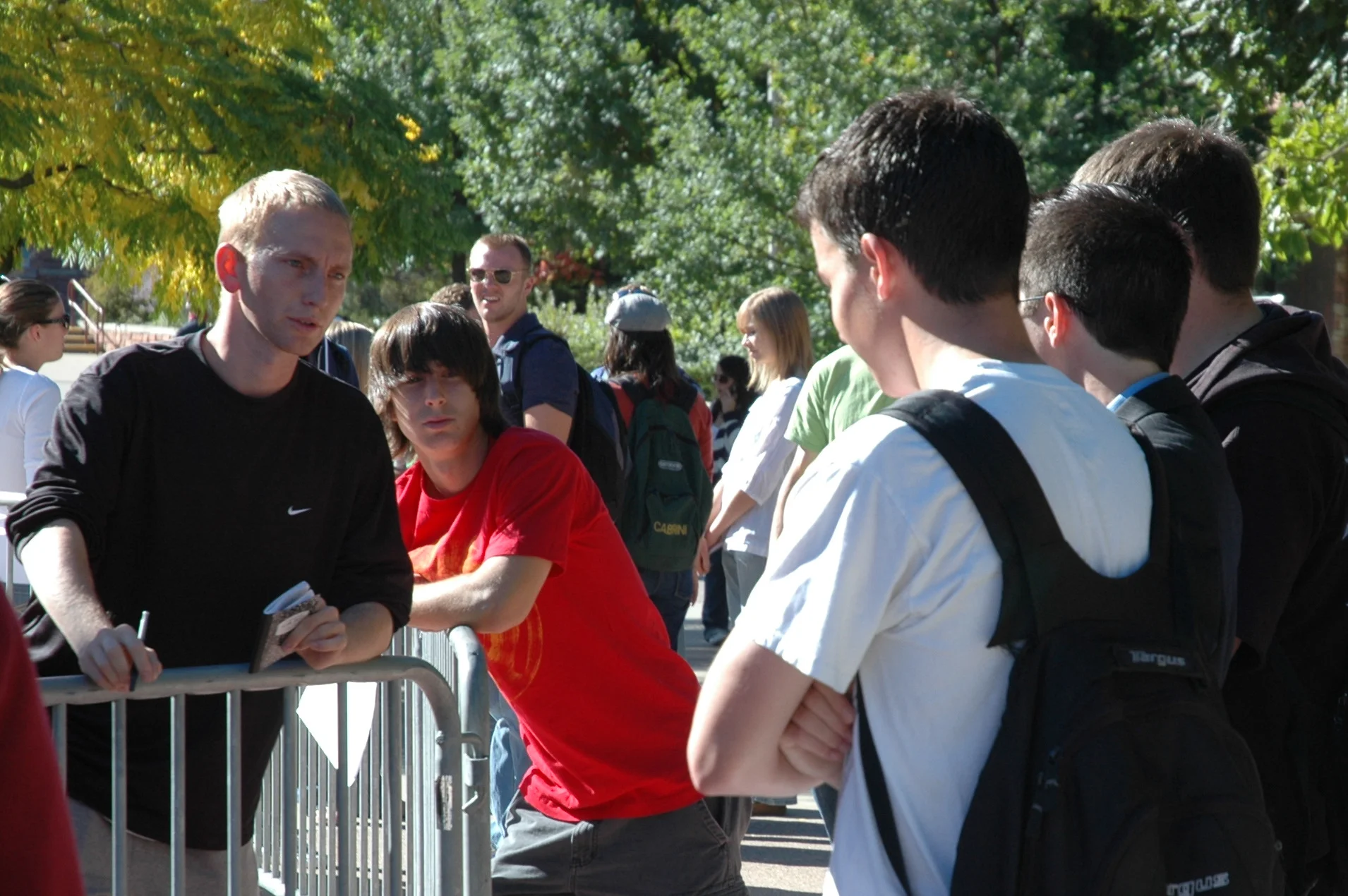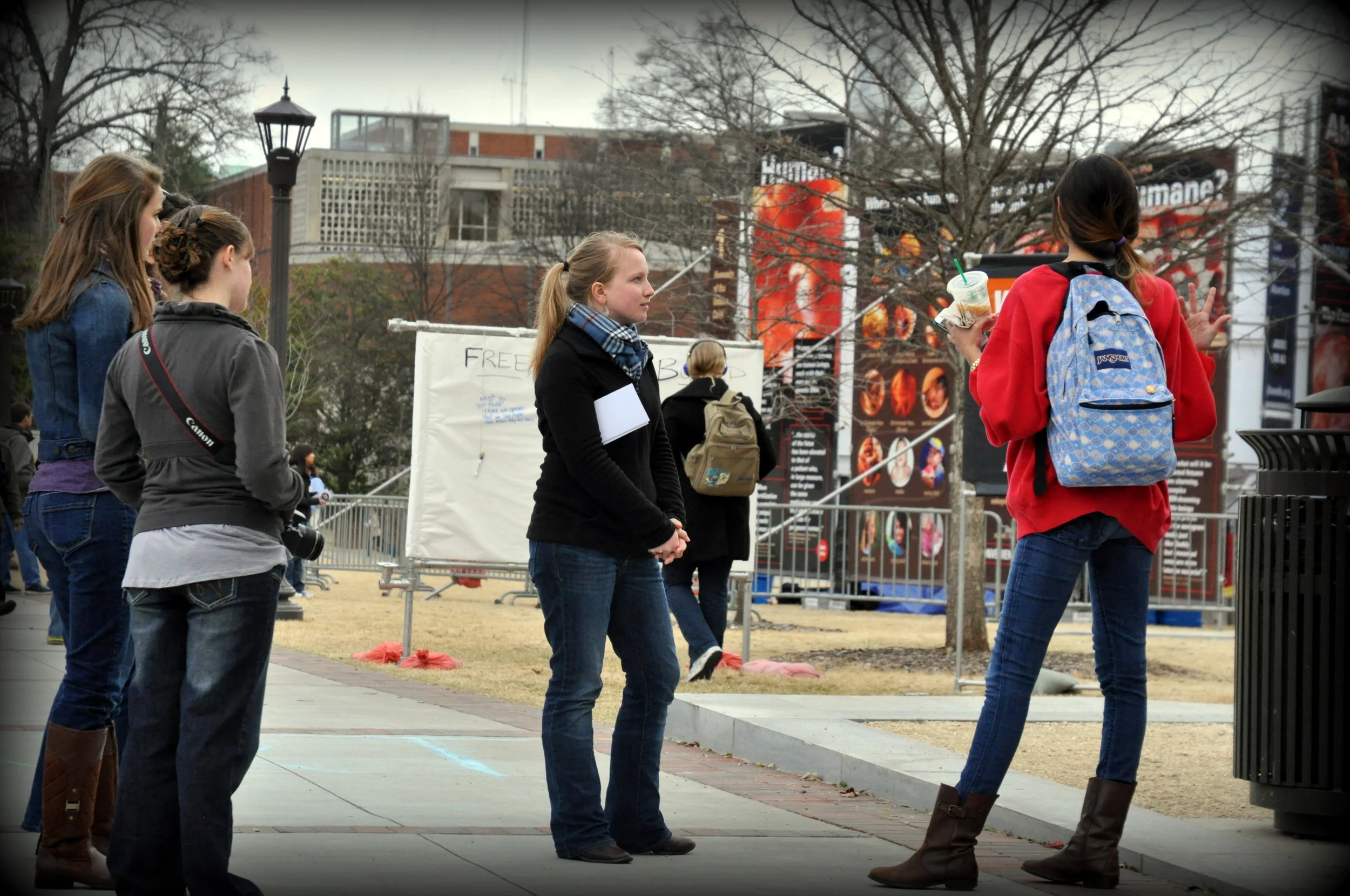Abortion: From Debate to Dialogue
JFA's Flagship Training Program
Starting conversations about abortion is difficult. Keeping those conversations productive is even harder. For those serious about learning to dialogue, our flagship training program, called Abortion: From Debate to Dialogue, features skilled dialogue mentors who lead participants through Seat Work (seminar), Feet Work (outreach), with the goal of preparing them to have conversations in everyday life, what we call Repeat Work.
Through the Lens of Right to Life of Central California
THROUGH NICOLE'S EYES
Nicole is a good example of how JFA trains people and what those people can accomplish through that training. Nicole participated in JFA’s flagship training program while she was a student at Focus on the Family Institute. First, she experienced what JFA calls “Seat Work,” which included lectures, interactive role-playing, and interaction with mentors skilled at engaging pro-choice advocates in conversations about abortion. Then she traveled with her class to what JFA calls a “Feet Work” experience, a campus outreach event conducted by JFA. Through the Feet Work event, she engaged in many conversations with pro-choice advocates, and JFA mentors were nearby to help if she got stuck.
During her second day of outreach, she developed the idea that she would try to talk to “just one more person,” but she talked to many more “just one more persons.” When she boarded the bus, she committed to talk to just one more person, which for her was her mom. She shared with her mom some of what she had learned about making abortion unthinkable through dialogue. (We call this next step to talk about abortion "Repeat Work.")
At the grocery store one day, her mom ended up encountering a woman trying to save money on her apple purchase in order to be able to get an abortion, and Nicole and her mom ended up helping this young woman choose against abortion. They and their church rallied to her side to give her the support that helped her give birth. So, Nicole went from knowing little about how to engage someone in conversation about abortion to being able to talk to those who disagree to being able to help her mom learn those same skills. Together, they then helped to support a pregnant mom in crisis and to save a life.
Read Nicole's reflection here.
More Information about the Training Program
This mentor-guided experience doesn’t just give you information, it gives you an opportunity to turn information into action. In our flagship program our mentors personally equip you, provide an outreach venue where you can practice, and walk alongside you to help you balance love and truth in your first conversations. We emphasize learning by doing both in our seminar (interactive role-playing) and at our outreach events (real conversations).
The links below give more detail on each of these distinctives of the JFA Flagship Training Program, Abortion: From Debate to Dialogue.





